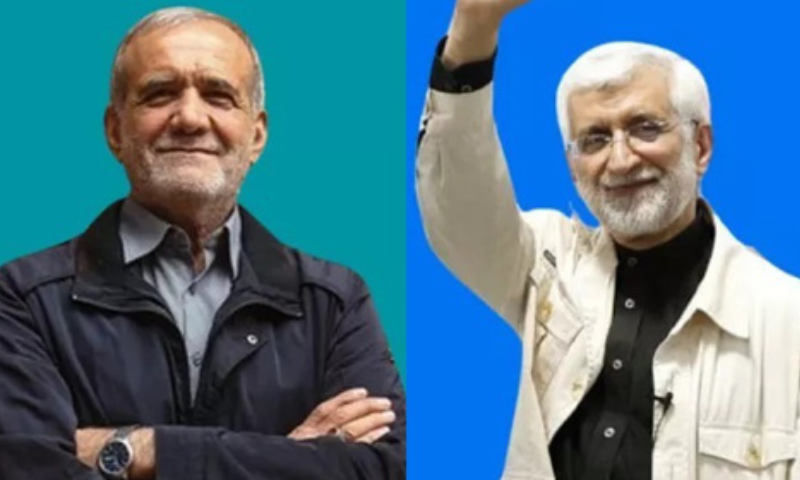TEHRAN: Preliminary results in Iran’s presidential election show Saeed Jalili, steadfastly loyal to Iran’s supreme leader, slightly ahead on Saturday, followed closely by Masoud Pezeshkian.
Mohsen Eslami, spokesperson for the country’s election headquarters, announced the results, counted across 27,938 polling stations out of 58,000. According to Press TV, former lead nuclear negotiator Jalili received 4,266,386 votes, while Pezeshkian collected 4,244,815 votes. The polls closed at midnight local time on Saturday, concluding a 16-hour-long voting process.
Earlier, the Iranian Interior Ministry extended the voting time for the 14th presidential election by two hours across the country. Polls, which opened at 8 a.m. local time, were initially scheduled to close at 6:00 p.m.
Eslami stated that the voting time had been extended for two hours.
The election follows the death of President Ebrahim Raisi in a helicopter crash last month, as reported by local media.
If no candidate wins 50% of the vote, a second round will be held on July 5, marking only the second time in the country’s electoral history that a runoff would occur, the first being in 2005.
About 61 million Iranians are eligible to vote in the election where reformist Masoud Pezeshkian hopes for a breakthrough win against the conservative camp. The Guardian Council, which vets candidates, permitted him to run against a field of conservatives now dominated by former nuclear negotiator Saeed Jalili and parliamentary speaker Mohammad Bagher Ghalibaf.
Also in contention is Mostafa Pourmohammadi after two candidates dropped out — Tehran mayor Alireza Zakani and Raisi’s former vice president Amir-Hossein Ghazizadeh Hashemi. Interior Minister Ahmad Vahidi announced the start of Iran’s 14th presidential election in a televised address.
Iran’s supreme leader Ayatollah Ali Khamenei cast his ballot and urged people to vote. “Election day is a day of happiness for Iranians,” he said, encouraging citizens to take the issue of voting seriously and participate. The election comes at a time of high regional tensions amid the Gaza conflict.
Meanwhile, Iranian Foreign Ministry spokesman Nasser Kanaani has criticized the United States for its stance on Iran’s presidential elections.
Kanaani condemned US interference in internal affairs after US Deputy Special Envoy for Iran Abram Paley stated that the election is not expected to change “Iran’s direction.”
Kanaani described these statements as exaggeration and clear interference in Iran’s internal affairs, adding that such statements are condemned.
He added that US authorities will not stop making such worthless statements, and the Iranian people will respond with a strong turnout in the presidential election.


